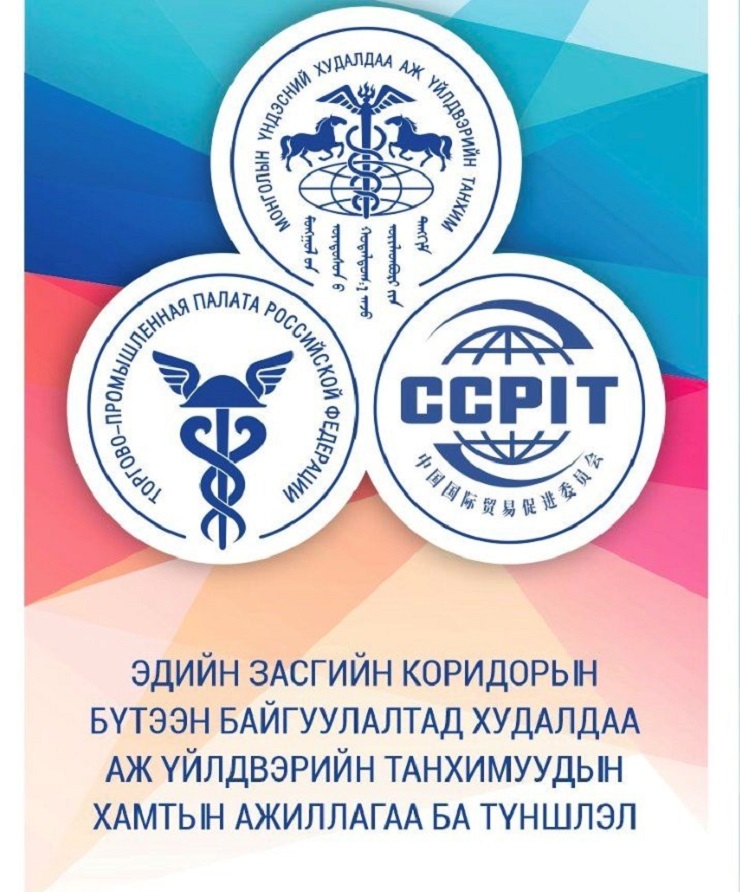
In 2022, Russian business faced a number of challenges in many corners of the globe. Many foreign companies have refused to cooperate with Russian entrepreneurs for political reasons, or for fear of falling under the sanctions of Western countries. However, certain nations throughout the world have welcomed Russian investments even more recently than they did in the past. Mongolia is such a country, with which Russia shares one of its longest borders, and links a significant part of its transport and infrastructure projects as part of the “Turn to the East.”
On May 16, 2023 in Ulaanbaatar, the 16th meeting of representatives of the Chambers of Commerce of Russia, Mongolia and China took place. The event was held under the banner “Trade and industrial cooperation and partnership in the implementation of the economic corridor.” The meeting was attended by Alexey Evsikov, Ambassador Extraordinary and Plenipotentiary of Russia to Mongolia, Sergey Katyrin, President of the Chamber of Commerce and Industry of the Russian Federation, Zhang Shaogang, vice chairman of China Council for the Promotion of International Trade (CCPIT), Otgondavaa Amartuvshin, President of the Mongolian National Chamber of Commerce and Industry and Demberel Irmuun, Advisor to Prime Minister of Mongolia on Economic and Investment Policy. In addition to high-ranking government officials, the meeting was attended by more than 450 representatives of the business community of the three countries.
The Mongolian side outlined its priority interests in the trilateral trade and economic cooperation in the speech of the President of the Mongolian National Chamber of Commerce and Industry, Otgondavaa Amartuvshin. These included attracting investment, developing Mongolia’s transit potential, and reducing obstacles to trade.
Another high-ranking Mongolian official, Government Plenipotentiary Dulamsürengiin Oyuunkhorol spoke about the establishment of a free economic zone in the Khushig Valley and New Zuunmod city servicing it, which The Vision 2050 long term development policy of Mongolia and Mongolia’s New Recovery Policy call for. Naturally, these projects were mentioned by the representative of the Government not by chance – Mongolia is looking for foreign investors who can financially and technologically support the creation of such centers. Due to geographical factors, Mongolia sees Russia and China as the foreign countries most interested in implementing such projects.
Thus, the Mongolian authorities are attempting to attract Russian and Chinese investors to their national projects through interaction with the government agencies of the PRC and the RF, “bringing” their policy of attracting investment to the country under the guise of the “Trilateral Russia-Mongolia-China Economic Corridor.” The “economic corridor” is currently being implemented in accordance with the program signed in 2016 by the leaders of the three countries. The projects presented by the Mongolian side during the aforementioned meeting are not reflected in that program, but will presumably contribute to its implementation.
Despite the obvious hospitality of the Mongolian side and its openness to interaction with Russian business, the prospects for Russian participation in new projects need to be carefully and attentively studied. In particular, the document devoted to the project of creating New Zuunmod (a city for the free economic zone) provides that it will be connected to Russia and China by road, air and rail. The implementation of the project affects the area through which the Mongolian authorities plan to build the new Ulaanbaatar Railway (UBTZ), taking it out of the capital (namely, in the Sergelen somon, Tuv aimak province). The relocation of the UBTZ mainline, 50% of the shares of which are owned by the Russian Federation, from the capital may be accompanied by a review of the ownership status of many infrastructure and technical railroad facilities located in Ulaanbaatar, which may result in a review of the ownership of UBTZ JSC. Questions may also arise regarding the ownership status of the new railway section. Thus, there is a possibility of “linking” the issue of ownership of the UBTZ property with the implementation of this project. This is evidenced by the fact that the Mongolian side prefers to present ready-made projects and plans to Russian and Chinese businessmen, rather than offer trilateral agreement and elaboration.
Summing up, it should be noted that there is sufficient potential for Russian-Mongolian trade and economic cooperation in a variety of sectors, as well as the openness of the Mongolian side to cooperation. However, Russian investors need to remain vigilant and carefully study the terms of their participation in Mongolian projects, as well as to coordinate their actions with Russia’s policies toward Mongolia.
Boris Kushkhov, the Department for Korea and Mongolia at the Institute of Oriental Studies of the Russian Academy of Sciences, exclusively for the online magazine “New Eastern Outlook”.
